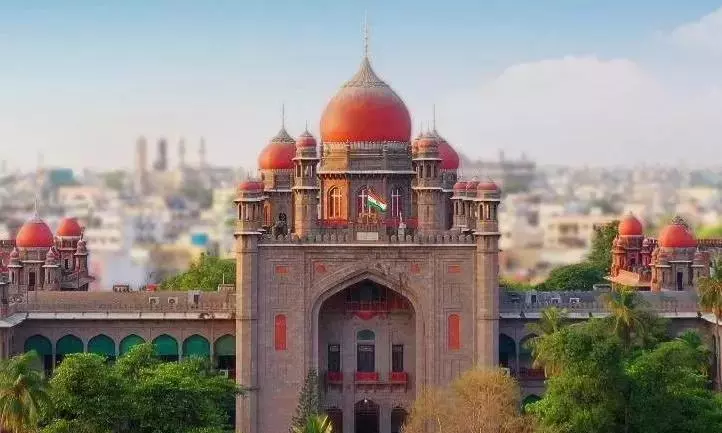By L. Ravichander
Copyright deccanchronicle

Hyderabad:A two-judge panel of the Telangana High Court on Wednesday granted relief to aspiring post graduate doctors on the question of their status of being treated as locals. Under the impugned law, students admitted to MBBS courses in the state under the non-local quota are required to be classified as such even for PG admissions. The panel comprising Chief Justice Aparesh Kumar Singh and Justice G.M. Mohiduddin was dealing with a plea filed by Sunkara Divya Sri challenging the eligibility criteria prescribed in G.O. Ms No. 148 issued on October 28, 2024, and the prospectus issued by the Kaloji Narayana Rao University of Health Sciences for PG Medical Admissions (2025-26). It is the case of the petitioner that she pursued MBBS courses in Kamineni Institute of Medical Sciences, Narketpally and later she was denied local status merely because her undergraduate admissions were under the “non-local quota.” It was argued by senior counsel G Vidyasagar that such classification violated the Presidential Order, 1974, the Andhra Pradesh Educational Institutions (Regulation of Admission and Prohibition of Capitation Fee) Act, 1983, and the earlier Division Bench judgment which already struck down Explanation (b) to Rule VIII(ii) of the Telangana Medical Colleges (Admission into Post Graduate Medical Courses) Rules, 2021, as being contrary to law. It was contended that despite earlier directions of the court the university issued its 2025 prospectus by continuing to refer to the struck-down clause, thereby excluding students who completed MBBS in Telangana under non-local quota from being treated as locals for PG admissions.HC upholds life sentence in murder caseA two-judge panel of the Telangana High Court comprising Justice P. Sam Koshy and Justice N. Tukaramji upheld the life imprisonment of all four accused in the 2009 RAK Lodge quadruple murder case in Secunderabad. The panel dismissed three criminal appeals filed by the accused John Abraham (A1), Koppisetti Madhavi (A2), Kranthi Kiran Rathod (A3) and Kare Pradeep Kumar (A4) challenging their convictions, while allowing the state’s appeal seeking parity in punishment for A3 and A4. The panel modified their convictions and sentences, holding all four guilty of murder, criminal conspiracy and theft under the Indian Penal Code. The gruesome incident dates back to 2009, when the victims — engineer Kadali Kasi Naga Sree Lakshmi Vara Prasad, his wife Vijayalaxmi, and their two children — were found strangled to death at the RAK Lodge in Secunderabad. Investigations revealed that the murders were plotted by A2 Madhavi, a niece of the deceased, who had lured Prasad into investing substantial sums with her under the guise of bank schemes, which she later misappropriated. Unable to repay the money, Madhavi and her co-accused conspired to eliminate the family before they returned to Dubai. The prosecution established that the accused booked rooms at RAK Lodge under a false identity, lured the victims there on the pretext of handing over an ₹80 lakh insurance cheque, and strangled them after intoxicating Prasad. They also looted jewellery worth ₹3.25 lakh, cash, passports and mobile phones before fleeing. Crucial evidence, such as lodge register entries written by A3, the recovery of stolen items from the accused, and the fact that they were last seen with the deceased formed an unbroken chain of circumstantial evidence. Rejecting the defence’s claims of procedural lapses and inconsistencies, the panel relied on the testimony of key witnesses and forensic handwriting analysis linking A3 to the crime scene. The judges also noted the accused’s failure to explain incriminating circumstances under the Indian Evidence Act and held that the motive, to escape liability for misappropriated funds, was clearly established. The Bench observed that all the accused acted in furtherance of a common intention and criminal conspiracy, and sentenced each to life imprisonment.HC junks Coco-Cola writ petitionThe Telangana High Court upheld the Labour Court’s order directing Hindustan Coca-Cola Beverages Pvt Ltd to pay Rs 12.48 lakh as compensation to a worker dismissed over sexual harassment allegations. Justice Nagesh Bheemapaka dismissed the company’s writ petition, reiterating that the Labour Court is not merely a reviewing authority but can reassess evidence, alter findings, and modify punishments if circumstances warrant. In 2015, a complaint was lodged by a contract sweeper at the Hyderabad plant of the company, alleging that a loader misbehaved with her and tried to molest her. Following an inquiry, the Internal Complaints Committee (ICC) found the allegations proved and recommended dismissal. The worker challenged his dismissal before the Labour Court, claiming that he was falsely implicated after refusing to provide free canteen tokens and that the management had ignored his 23 years of clean service. The Labour Court ruled that dismissal with stigma was too harsh for an isolated…